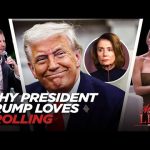A strange visitor from beyond our solar system, officially cataloged as 3I/ATLAS, has been tracked by astronomers after being first reported by the ATLAS survey on July 1, 2025. NASA calls it an interstellar comet with a visible coma and says it poses no threat to Earth, but its size, speed, and trajectory have put the nation’s telescopes on alert. Americans should know what’s coming through our celestial backyard and be reassured that scientists are watching closely.
Harvard astrophysicist Dr. Avi Loeb told Rob Schmitt Tonight that the object’s anomalies — including strange jets and an oddly tuned path — cannot be shrugged off as mere speculation and deserve immediate investigation. Loeb even estimates a surprisingly high probability that the object’s trajectory could be designed and has urged using existing spacecraft like Juno to get a closer look rather than letting bureaucracy sweep the matter under the rug. When leading scientists speak plainly about risks and possibilities, Washington should listen and act without delay.
The list of observed oddities is not trivial: the visitor’s path hugs the plane of the planets, its tail and coma show unexpected behavior, and some measurements don’t fit tidy, comfortable textbook answers. Mainstream voices rushed to label it a comet and move on, but conservatives believe in skepticism of consensus when inconvenient data keep piling up. We built this country on curiosity and strength, not on reflexive deference to an academic club that too often protects its reputation over the public’s safety.
Worse still, voices including Rep. Anna Paulina Luna and outside experts have warned of the theoretical possibility that a large interstellar body could shed smaller objects or “mini-probes” that might be mistaken for UAPs as they enter our neighborhood. That is exactly the sort of scenario where NASA and the Department of Defense should be coordinating now, not after the fact, and where extending missions like Juno could provide invaluable real-time intelligence. If Congress needs prodding to act, patriotic lawmakers should not hesitate to demand mission extensions and transparency.
This is a moment to reject the comfortable, sleepy thinking that treats national security like a checkbox on a government form. Our space assets and military sensors are taxpayer-funded for a reason: to protect Americans from real threats, foreign or otherwise, and to gather facts before fear fills the vacuum. If bureaucrats prefer press releases over probes, then private scientists, members of Congress, and the American people must pressure them into doing the job they were paid to do.
Dr. Loeb is sounding an alarm that honest investigators and patriotic citizens should heed, not jeer. Conservatives value common-sense vigilance: investigate anomalies, use every available tool, and demand transparent answers from those in charge of our skies. Hardworking Americans deserve a government that treats unexpected threats with seriousness, not snark, and that backs up its words with action.




